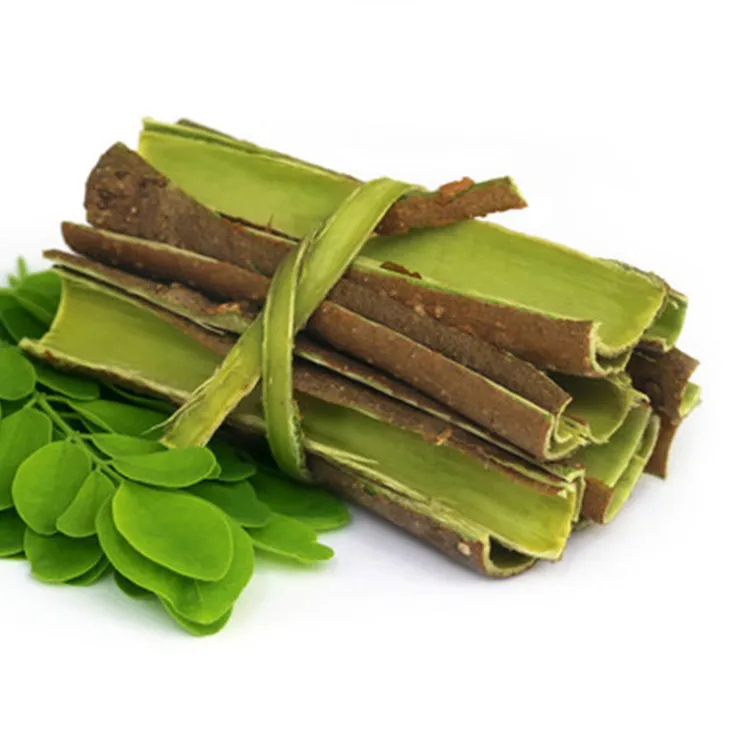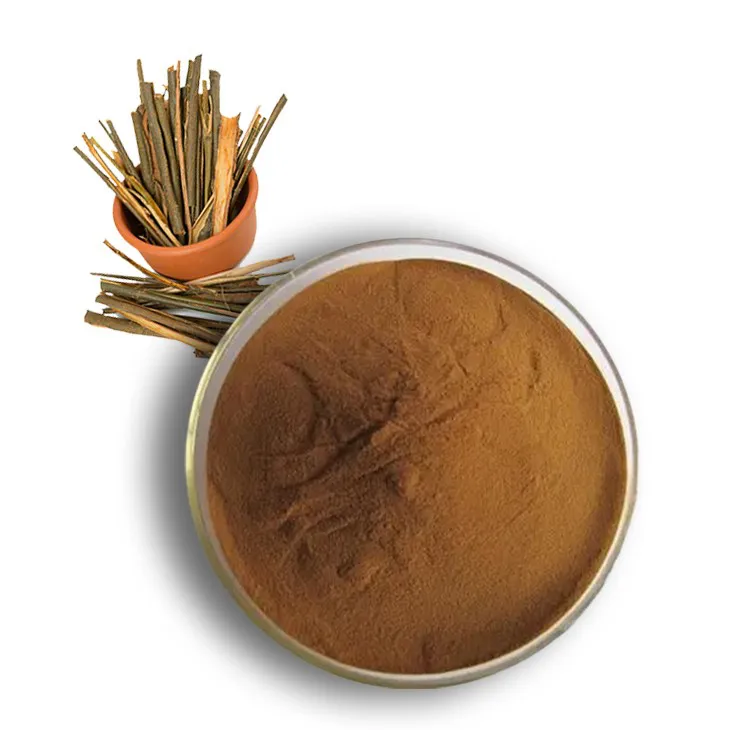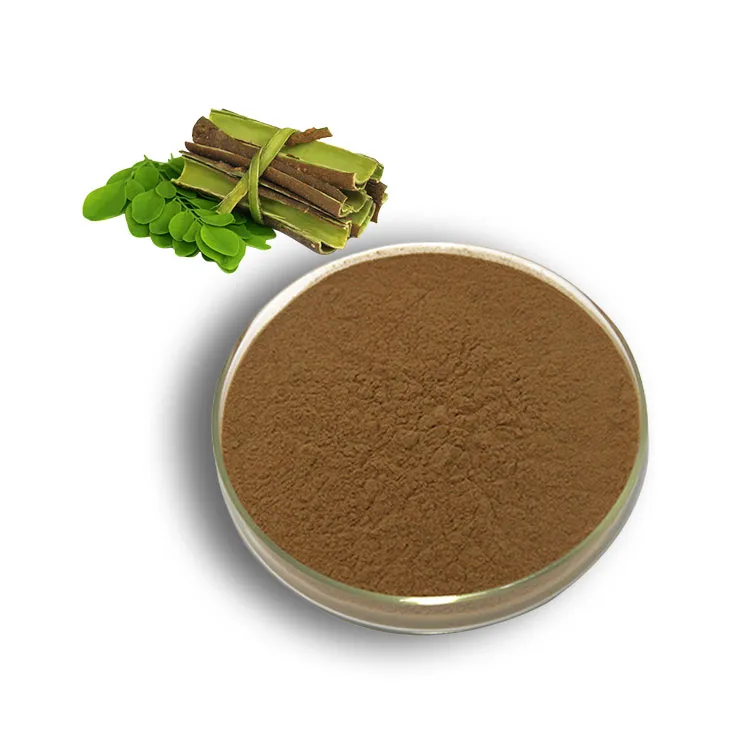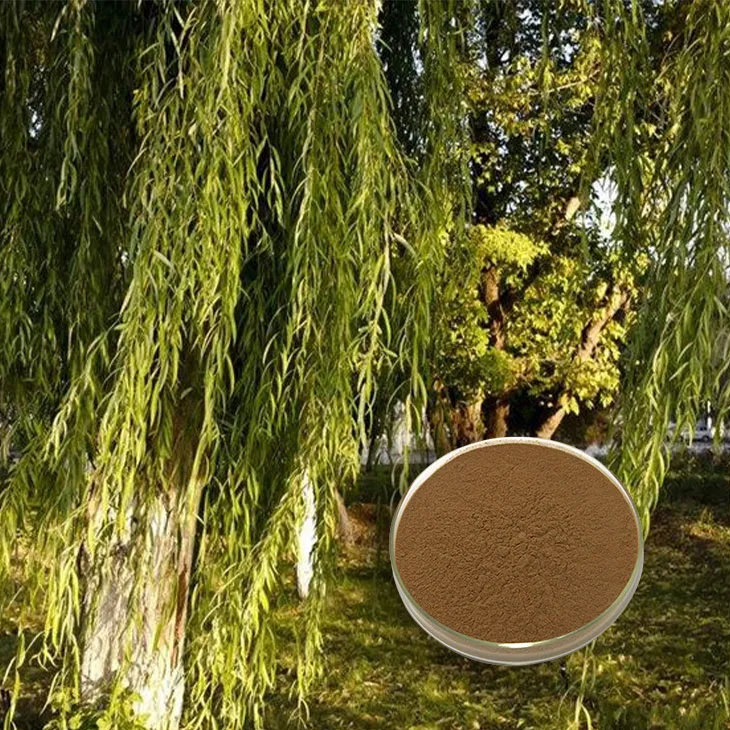- 0086-571-85302990
- sales@greenskybio.com
White Willow Bark Extract: What Are the Benefits and How to Take It?
2024-11-14

Introduction
White Willow Bark Extract has been used for centuries in traditional medicine, and modern research is now starting to uncover the many potential health benefits it offers. Derived from the bark of the white willow tree (Salix alba), this natural extract contains a compound called salicin, which is closely related to aspirin. In this article, we will explore the various benefits of White Willow Bark Extract and discuss the different ways in which it can be consumed.

Benefits of White Willow Bark Extract
1. Pain Relief
One of the most well - known benefits of white willow bark extract is its ability to relieve pain. Salicin, the active compound in the extract, is converted into salicylic acid in the body. This acid has analgesic properties, similar to those of aspirin. It can be effective in reducing various types of pain, including:
- Headache pain: Many people find that white willow bark extract can help to alleviate mild to moderate headaches. It may work by reducing inflammation in the blood vessels in the head and inhibiting pain signals.
- Muscle and joint pain: Whether it's due to overexertion, arthritis, or other conditions, white willow bark extract may offer relief. It can help to reduce inflammation in the joints and muscles, which is often a major cause of pain in these areas.
- Back pain: Chronic back pain can be debilitating, but white willow bark extract may provide some relief. It can target the inflamed tissues in the spine and surrounding muscles, reducing pain and improving mobility.
2. Anti - Inflammatory Properties
White willow bark extract has strong anti - inflammatory properties. Inflammation is a natural response of the body to injury or infection, but chronic inflammation can lead to a variety of health problems, such as heart disease, diabetes, and arthritis. The salicin in the extract helps to reduce inflammation by:
- Inhibiting the production of inflammatory mediators: These are substances in the body that trigger and sustain the inflammatory response. By reducing their production, white willow bark extract can help to calm down inflammation.
- Reducing oxidative stress: Inflammatory processes often generate free radicals, which can cause oxidative damage to cells. The extract has antioxidant properties that can neutralize these free radicals, reducing oxidative stress and further alleviating inflammation.
3. Fever Reduction
Similar to its pain - relieving properties, white willow bark extract can also help to reduce fever. When the body is fighting an infection, it may raise its internal temperature as part of the immune response. The salicylic acid formed from salicin in the extract can act on the hypothalamus, the part of the brain that regulates body temperature, to bring the fever down.

How to Take White Willow Bark Extract
1. Capsules and Tablets
One of the most convenient ways to take white willow bark extract is in the form of capsules or tablets. These are widely available in health stores and online. When choosing a product, it is important to:
- Check the dosage: Different products may contain different amounts of white willow bark extract. It is essential to follow the recommended dosage instructions provided by the manufacturer or a healthcare professional.
- Look for quality products: Ensure that the product is from a reputable source and has been tested for purity and potency.
2. Tinctures
Tinctures are liquid extracts of white willow bark. They are usually made by steeping the bark in alcohol or a mixture of alcohol and water. To take a tincture:
- Measure the appropriate dose using a dropper. The typical dose may vary depending on the product, but it is usually a few drops to a few milliliters.
- Place the drops under the tongue and hold for a few seconds before swallowing. This allows for better absorption through the mucous membranes in the mouth.
3. Teas
White willow bark tea can be a pleasant and natural way to consume the extract. To make white willow bark tea:
- Take about 1 - 2 teaspoons of dried white willow bark and place it in a cup.
- Pour boiling water over the bark and let it steep for 10 - 15 minutes.
- Strain the tea to remove the bark pieces and enjoy. You can add honey or lemon for taste if desired.

Precautions and Considerations
1. Side Effects
While white willow bark extract is generally considered safe for most people when taken in appropriate doses, it can cause some side effects. These may include:
- Stomach upset: Some people may experience nausea, vomiting, or abdominal pain. This is more likely to occur if the extract is taken on an empty stomach or in high doses.
- Allergic reactions: In rare cases, individuals may be allergic to white willow bark extract. Symptoms of an allergic reaction may include rash, itching, swelling, or difficulty breathing.
2. Interactions with Medications
White willow bark extract may interact with certain medications. For example:
- Blood - thinning medications: Since white willow bark extract has blood - thinning properties similar to aspirin, it can increase the risk of bleeding when taken with other blood - thinning drugs such as warfarin or aspirin itself.
- Non - steroidal anti - inflammatory drugs (NSAIDs): Taking white willow bark extract along with NSAIDs like ibuprofen or naproxen may increase the risk of side effects such as stomach ulcers and bleeding.
3. Not for Everyone
White willow bark extract is not suitable for everyone. It should be avoided by:
- Children under 18: There is not enough evidence to support its safety in children, and it may pose a risk of Reyes syndrome, a rare but serious condition.
- Pregnant and breastfeeding women: The safety of white willow bark extract during pregnancy and breastfeeding has not been established, so it is best to avoid it.
- People with certain medical conditions: Those with liver or kidney problems, stomach ulcers, or bleeding disorders should consult a healthcare professional before using white willow bark extract.

Conclusion
White willow bark extract offers a range of potential health benefits, from pain relief to anti - inflammation. However, it is important to use it safely and be aware of the precautions. By choosing the right form of the extract and following the appropriate dosage, individuals can potentially make the most of its health - promoting qualities while minimizing the risks. As with any natural supplement, it is always advisable to consult a healthcare professional before starting to use white willow bark extract, especially if you have any pre - existing medical conditions or are taking other medications.
FAQ:
What is white willow bark extract?
White willow bark extract is derived from the bark of the white willow tree (Salix alba). It contains a natural compound called salicin, which is similar in structure to aspirin. This extract has been used for centuries in traditional medicine for various health purposes.
What are the main benefits of white willow bark extract?
One of the main benefits is its analgesic (pain - relieving) property. It can help reduce minor aches and pains such as headaches, muscle pain, and joint pain. It also has anti - inflammatory effects, which can be beneficial for conditions like arthritis. Additionally, it may have antipyretic (fever - reducing) properties.
How can one take white willow bark extract?
It can be taken in various forms. It is available as a supplement in capsule or tablet form. Some people also make a tea from white willow bark. However, when taking it as a supplement, it is important to follow the recommended dosage instructions on the product label. And it's advisable to consult a healthcare provider before starting any new supplement regimen.
Are there any side effects of white willow bark extract?
While white willow bark extract is generally considered safe for most people when taken in appropriate doses, some possible side effects may include stomach upset, nausea, and in rare cases, allergic reactions. High doses or long - term use may also increase the risk of bleeding, especially in people with bleeding disorders or those taking blood - thinning medications.
Can white willow bark extract interact with medications?
Yes, it can. As mentioned before, it may increase the risk of bleeding when taken with blood - thinning medications like warfarin. It may also interact with non - steroidal anti - inflammatory drugs (NSAIDs) and aspirin, potentially increasing the risk of side effects such as stomach ulcers or bleeding. Therefore, it is crucial to inform your doctor about any supplements you are taking, including white willow bark extract.
Related literature
- The Benefits and Risks of White Willow Bark Extract"
- "White Willow Bark Extract: A Natural Alternative to Aspirin?"
- "Using White Willow Bark Extract for Inflammatory Conditions"
- ▶ Hesperidin
- ▶ Citrus Bioflavonoids
- ▶ Plant Extract
- ▶ lycopene
- ▶ Diosmin
- ▶ Grape seed extract
- ▶ Sea buckthorn Juice Powder
- ▶ Fruit Juice Powder
- ▶ Hops Extract
- ▶ Artichoke Extract
- ▶ Mushroom extract
- ▶ Astaxanthin
- ▶ Green Tea Extract
- ▶ Curcumin
- ▶ Horse Chestnut Extract
- ▶ Other Product
- ▶ Boswellia Serrata Extract
- ▶ Resveratrol
- ▶ Marigold Extract
- ▶ Grape Leaf Extract
- ▶ New Product
- ▶ Aminolevulinic acid
- ▶ Cranberry Extract
- ▶ Red Yeast Rice
- ▶ Red Wine Extract
-
Artichoke Leaf Extract
2024-11-14
-
Uridine-5'-monophosphate Disodium salt
2024-11-14
-
Okra Extract
2024-11-14
-
Saw Palmetto Extract
2024-11-14
-
Tongkat Ali Extract
2024-11-14
-
Longan Extract
2024-11-14
-
Bilberry Extract
2024-11-14
-
Yellow Pine Extract
2024-11-14
-
Alisma Extract
2024-11-14
-
Licorice Root Extract Powder
2024-11-14





















